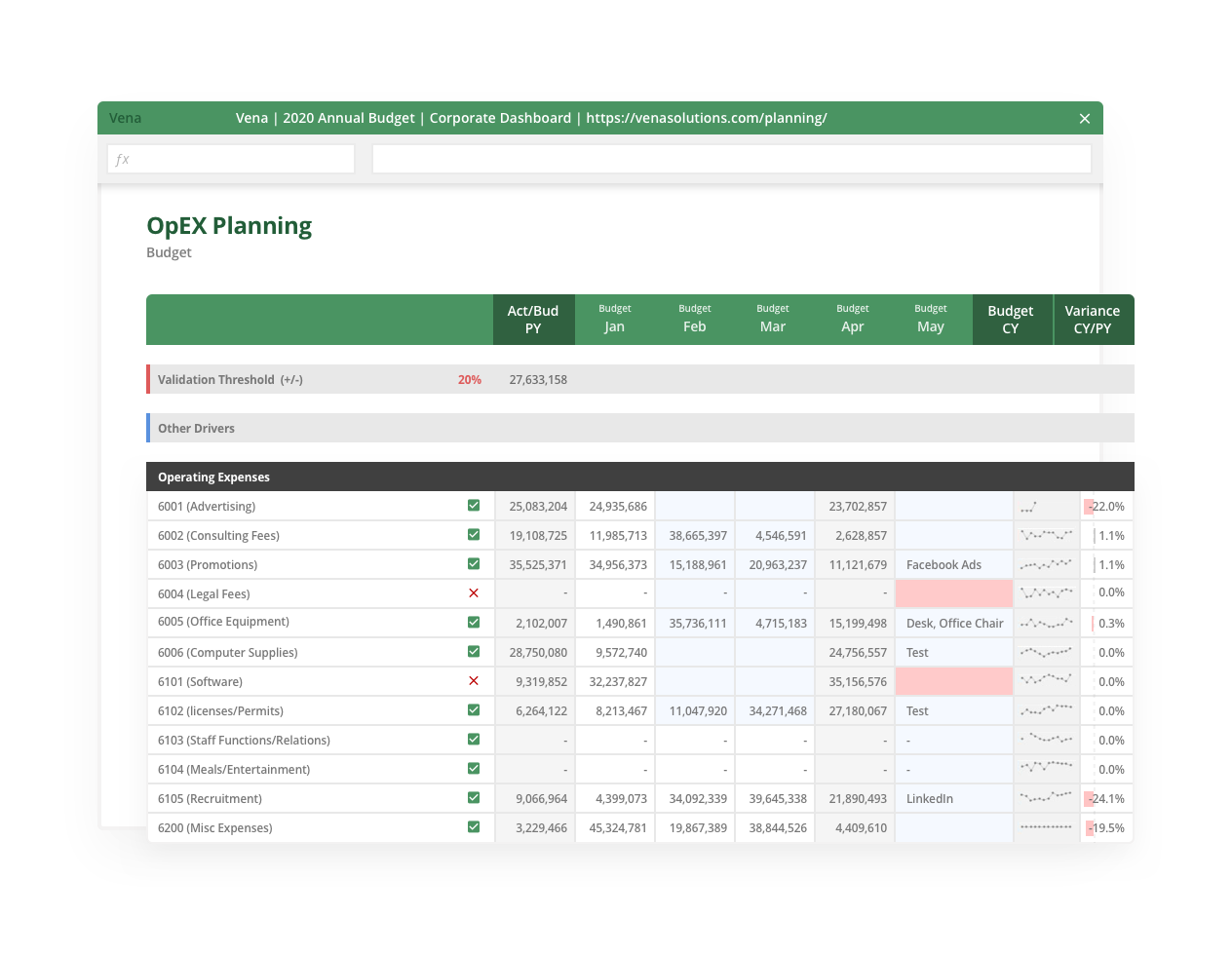

Vena has really empowered our conservation teams to make the most of their allocated funding.

As an arm of the world's most prominent environmental conservation group, WWF-Canada is always working hard to fund a greener future through donations and government grants. But before implementing Vena, efficient project and resource planning was tough to achieve for the nonprofit’s finance team—they were spending more time manually distributing data than actually analyzing it.
“We always ended up copying and pasting data from our old system into Excel to distribute reports and do our inputs. It was quite inefficient,” says Clement Marlin, WWF-Canada’s Senior Financial Specialist. “Our project coordinators didn’t have a lot of visibility into the funds that were available to them.”
If a project coordinator needed a fund balance report to better inform their program plans, Clement would have to spend two hours compiling donations data from the general ledger. This made it hard for coordinators to proactively manage their resource allocations and collaborate closely with Clement’s team to identify opportunities for improvement.
“Everyone was managing their program plans with different templates, so rolling that up into a final budget for management was a big task,” says Clement. “If things changed or if we needed to revisit something, we couldn’t do that in a timely fashion at all.”

When Clement started his Vena implementation in late 2018, his first priority was to standardize WWF-Canada’s planning templates. He also wanted to create a single source of truth for all finance-led processes including budgeting, forecasting, reporting and month-end close. Vena’s direct integration with Microsoft Dynamics GP—the charity’s existing GL system—allowed Clement to build an intuitive, centralized database that didn't force program staff to abandon the comfort of Excel.
“In my experience, you always end up reverting back to Excel to slice and dice data, no matter what system you’re using,” he says. “With Vena, I’m happy to have software that really embraces that idea because it’s allowed me to create one template structure for all of our different programs.”
As they map out their plans with Vena, coordinators just input their program parameters right into the pre-configured template. Then the relevant fund data flows in from the GL automatically, which has transformed fund balance reporting from two hours into a two-second process. Instead of relying on Clement for their numbers, coordinators can just hit a refresh button in Vena to see live balances, upcoming expenses and budget variances all in one place.
Another key selling point was Vena’s role-based security permissions and customizable workflow engine. Clement says it’s been especially useful for labor cost allocations because now only the managers can approve those inputs in Vena.
“This provides security for us in finance because now VPs can’t say, ‘I didn’t approve this budget,’ because it got lost in an email somewhere,” he says. “Vena is very transparent. It makes our department heads more accountable to what’s going on with their numbers.”

Since moving over to Vena, Clement has enjoyed a far more “reciprocal” relationship with WWF-Canada’s project coordinators. Finance provides program staff with the fund details they need to plan, while coordinators provide feedback so finance can better align fundraising goals.
“Vena has really empowered our conservation teams to make the most of their allocated funding,” says Clement. “Before, I felt like I had a very transactional role because I had to organize our fund data manually all the time. But now, program staff can drill down into templates instantly and access the finest detail behind the numbers whenever they need to. Vena really frees up my time so I can perform analysis and other value-added work.”
One of those value-added initiatives was a new rolling forecast with Vena, which Clement put into practice just a few months before the COVID-19 crisis. The timing of that project was great—it gave Clement the flexibility to confidently gauge how funding shortfalls would impact WWF-Canada’s program plans for the rest of the year and beyond.
“I’m able to constantly revise my numbers while year-end balances and results update automatically,” he says. “I’m very happy with our rolling forecast in Vena. Without it, we would have had a lot more uncertainty regarding how we should allocate our resources.”
Moving forward, Clement plans to expand the forecasting process out to program staff as they all get more comfortable making long-term predictions about funding requirements. His advice to other nonprofit finance leaders is this: Be agile, be efficient and make sure your program staff are empowered with the data they need.
“This is such a powerful tool,” says Clement. “Our coordinators can really own their financials with Vena, and that’s what’s most important.”
Over 2,000 leading companies grow with Vena. Start your journey today